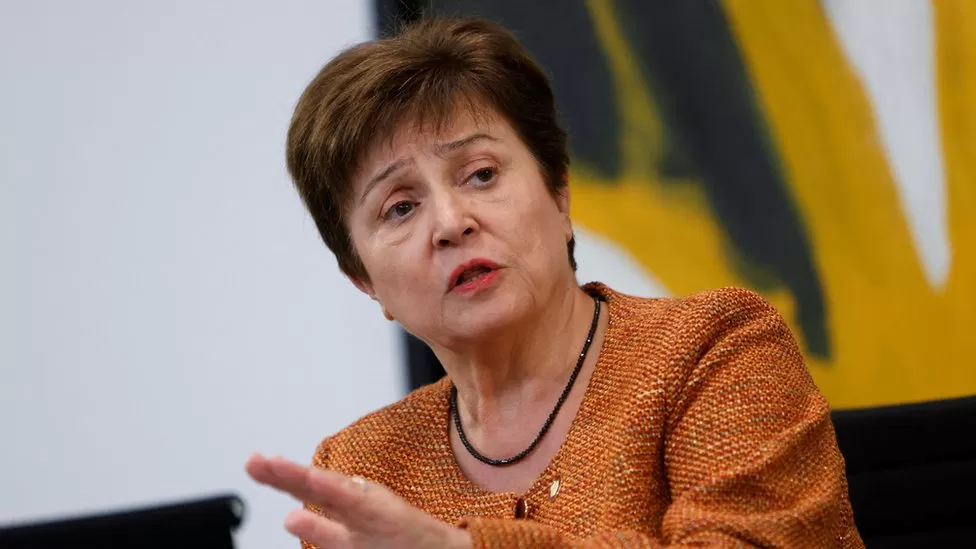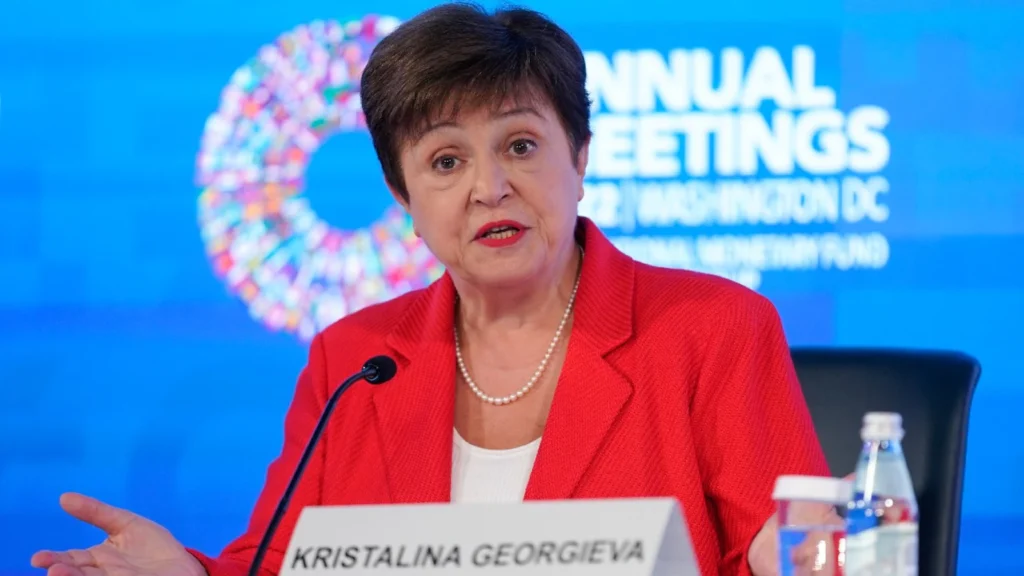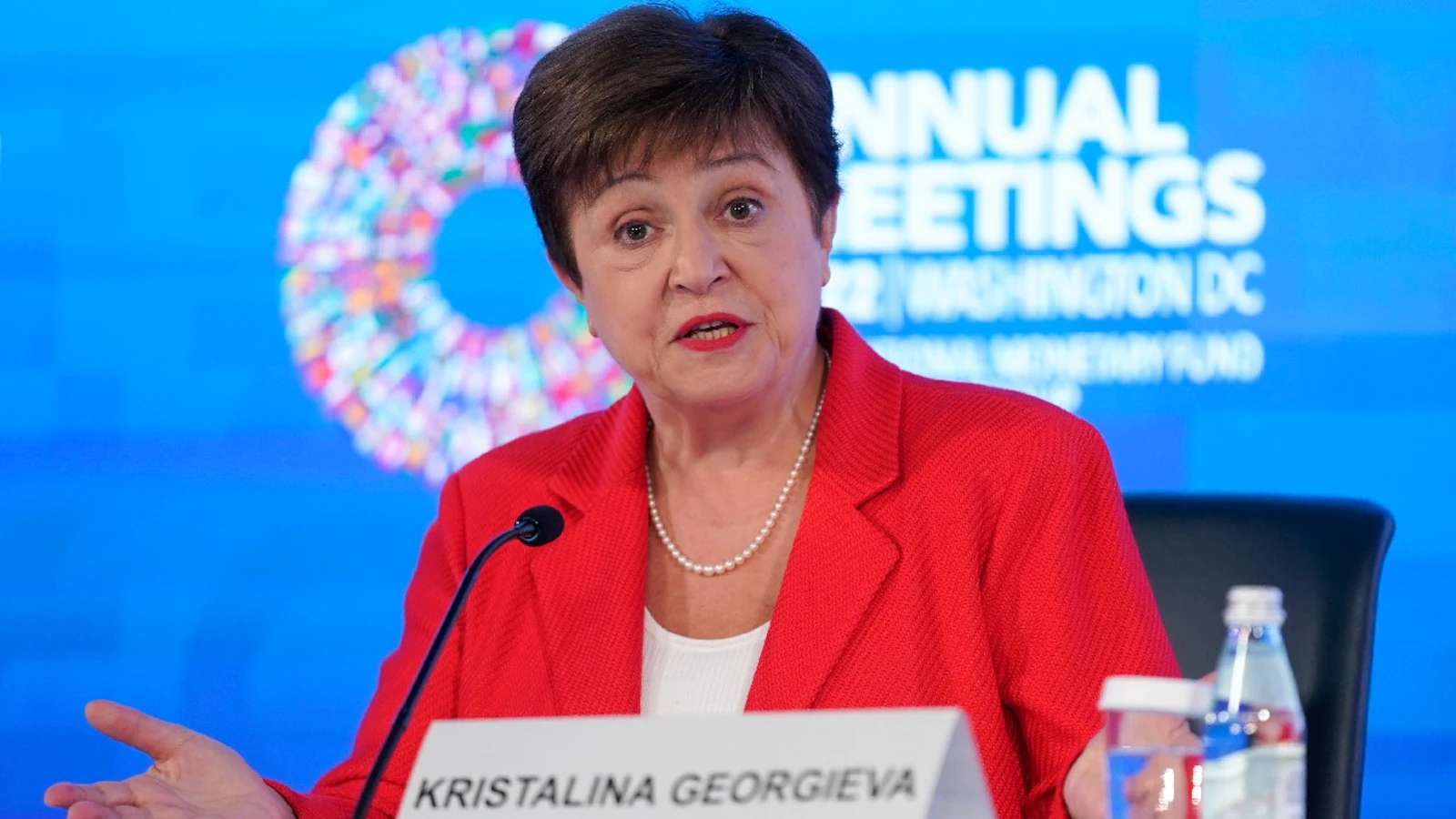The International Monetary Fund (IMF) has called on Ghana and other African economies to intensify fiscal discipline and accelerate structural reforms to navigate current global economic uncertainties.
Speaking at a press conference during the IMF-World Bank Spring Meetings, IMF Managing Director Kristalina Georgieva highlighted the urgent need for African policymakers to respond proactively to growing economic headwinds.

While Africa remains home to some of the world’s fastest-growing economies, Georgieva warned that external shocks such as weakening global demand could derail progress, especially for low-income and conflict-affected nations. The IMF has already revised its growth projections for the continent downward, citing broader macroeconomic challenges.
In her remarks, Georgieva emphasized that oil-exporting countries like Nigeria are facing budgetary constraints due to falling oil prices, while oil-importing nations like Ghana may benefit from reduced energy costs. However, she pointed out that policy responses must be tailored to individual country needs.
Ghana, for instance, recently increased its benchmark interest rate for the first time in nearly three years, diverging from Egypt, which opted for a rate cut. Georgieva praised this move as a proactive step in addressing domestic inflationary pressures and stressed that central banks must prioritize national economic conditions over regional trends.
“Policymakers must assess their own inflationary pressures and act accordingly,” she noted.
The IMF’s key recommendations for African economies include broadening tax bases, combating tax evasion, and leveraging technology for efficient revenue collection. Georgieva made it clear that there is no room for inaction, urging governments to build financial buffers and fortify resilience against future shocks.
In addition to fiscal and monetary reforms, Georgieva underscored the significance of good governance and regional cooperation. She warned that instability and corruption in one country could have far-reaching consequences across the continent. Strengthening institutions and enhancing transparency, she said, are vital to fostering investor confidence and sustainable growth.
Trade integration under the African Continental Free Trade Area (AfCFTA) also featured prominently in her speech. Georgieva lauded efforts aimed at reducing infrastructure barriers and encouraged African nations to capitalize on intra-continental trade to fuel economic transformation.

For Ghana, the IMF’s message reinforces the urgency of implementing long-term structural reforms to address persistent challenges such as inflation, high debt, and limited fiscal space. Aligning with AfCFTA and fostering macroeconomic stability will be crucial in unlocking the country’s growth potential.
Despite short-term volatility, Georgieva remains optimistic about Africa’s future. “With its rich resources, youthful population, and growing markets, Africa can become a global economic powerhouse,” she stated.
As global uncertainty endures, the IMF’s guidance signals a clear path forward: decisive action, sound fiscal management, and enhanced regional collaboration are key to sustaining Africa’s economic momentum.




